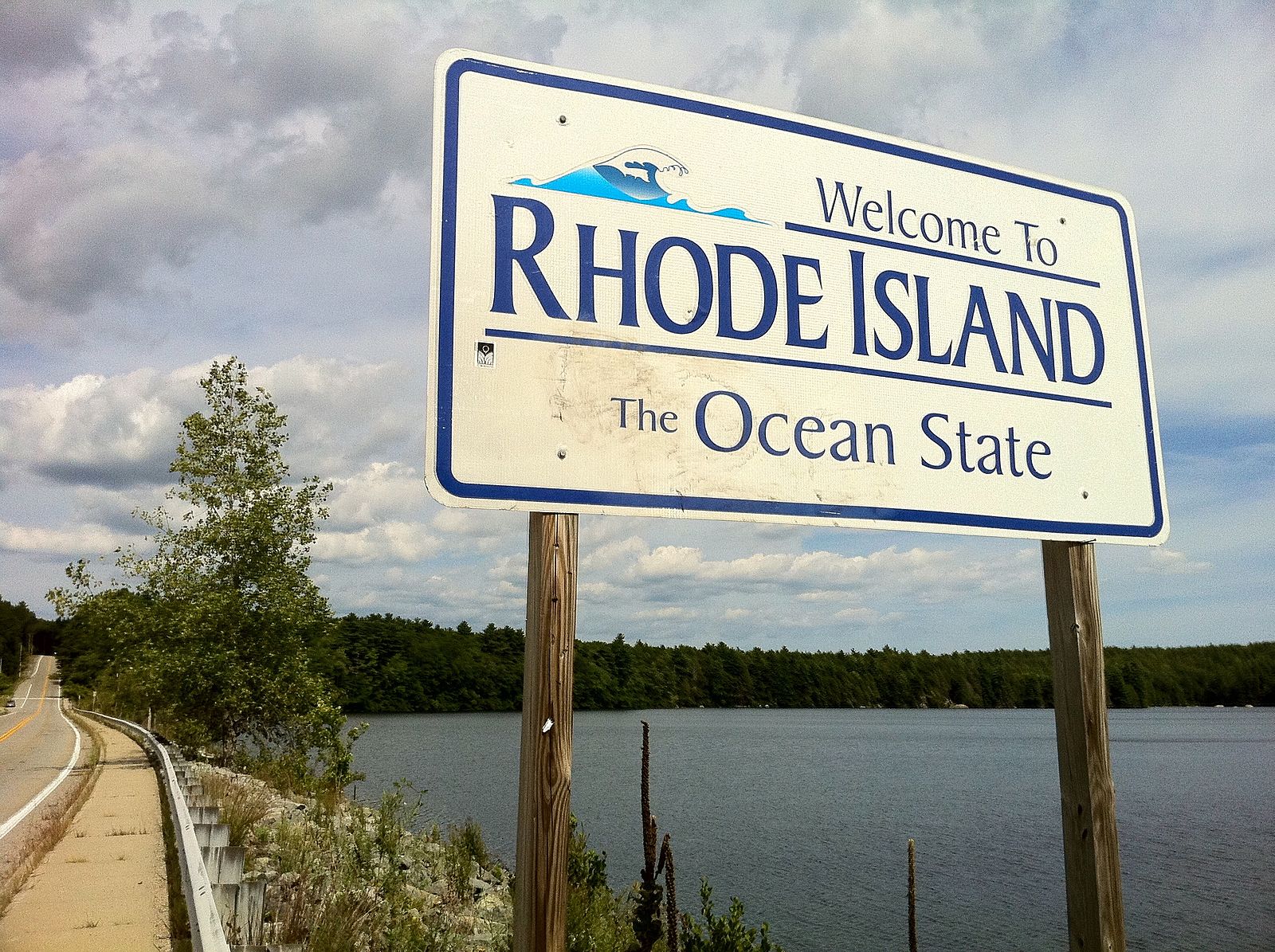On an April evening earlier this year, women wearing scarlet cloaks filed into the Rhode Island State House, oversized bonnets obscuring their faces. The costume was a nod to Margaret Atwood’s novel The Handmaid’s Tale, which depicts a dystopian New England in which women are deprived of their rights and exploited for reproductive purposes. It has recently emerged as a feminist symbol allied to the advancement of women’s rights, particularly reproductive freedom. Despite taking place in a notoriously blue state, this demonstration met immediate backlash: “You’re disgusting pigs!” shouted a man as the women proceeded down the corridor. “Shameful! Shameful!” called another.
That night, six bills on reproductive rights were heard by the Rhode Island House Judiciary Committee, five of which endeavored to limit reproductive rights. Though none of the anti-abortion bills moved forward to a floor vote, neither did the only bill of the six in support of pro-choice policies. The Reproductive Health Care Act (RHCA) was not passed and remains stuck in committee.
Stagnant progress on this issue may seem surprising in light of Rhode Island’s voting tendencies. Having only voted for Republican presidents four times in the past 90 years, the state is widely considered a Democratic stronghold. In fact, Democrats control every major political office and outnumber their Republican colleagues 8-to-1 in the state senate. This reputation, however, does not denote progressivism on all issues: Indeed, Rhode Island has unconstitutional abortion restrictions on the books.
One such restriction prohibits insurance coverage for an abortion unless the person receiving it has paid a premium for a policy that gave them the option to abort. Another requires prior notice to a spouse. A third outlaws abortion procedures as early as 12 weeks. These restrictions unsurprisingly earned Rhode Island an ‘F’ in the 2016 NARAL Pro-Choice America grading of state laws.
Though over 60 percent of Rhode Island residents support legalized abortion, the state’s General Assembly is run almost entirely by Democrats backed by pro-life organizations. In fact, the four male Democrats who lead the General Assembly have each been endorsed by anti-choice organizations at some point during their careers. Though the RHCA simply seeks to codify the rights upheld by Roe v. Wade in state law, it has proved unpalatable for the anti-abortion Democrats who populate the state’s senate. Democratic Speaker Nicholas Mattiello has even declared that a public debate on the “divisive” abortion issue is not “of real concern.”
With the recent confirmation of Justice Brett Kavanaugh to the Supreme Court, state codification of Roe has arguably never been of greater concern. Kavanaugh has long advocated for anti-choice policies. As such, the erosion of Roe is now a much more likely outcome, which would allow states greater autonomy in the restriction of reproductive rights. The need to ensure reproductive justice in the state of Rhode Island is dire.
Though identifying as pro-choice and Democratic are often assumed to be interlinked, Rhode Island’s political landscape proves otherwise. Fewer than 12 percent of the state’s registered voters are Republican, but 42 percent are Roman Catholic, the highest percentage of Catholics in any US state. The Church consequently wields significant power and has been forthright in striving to straitjacket the RHCA’s advancement. Thus far, it has been successful. Edith Ajello, one of two Providence Democrats responsible for first introducing the RHCA, was approached by 10 of the bill’s 36 initial cosponsors who asked that their names be removed from it. These legislators cited pressure from churchgoing constituents who were mobilized by handouts distributed at Sunday Mass, which included the pictures and contact information of RHCA sponsors.
More troubling still, productive dialogues between pro- and anti-choice advocates are waning. Anti-choice organizations are digging in their heels to ensure that their platform extends beyond the walls of Rhode Island’s legislature. In 2016, a portrait of Governor Gina Raimondo was removed from the wall of notable alumni at her Catholic preparatory school after she met with Planned Parenthood. Mary Sorrentino, former director of Planned Parenthood Rhode Island, was excommunicated by a Catholic bishop for her work on abortion access. Providence Bishop Thomas Tobin cited support of abortion as “a cause of scandal,” asserting that pro-choice politicians “demonstrate an inexcusable lack of moral courage.” With each of these actions, the Church further propels polarization and limits pluralistic debate.
“I am tired of hearing of stories privately that people are too afraid to talk about publicly,” declared Sorrentino of the government’s stunted ability to debate reproductive rights in the wake of Church intervention. It is essential that legislators have the ability to act without fear of personal retaliation from anti-choice groups. In this forthcoming legislative session, the Blue Wave of progressivism must not collapse before it brings reproductive rights to the shores of the Ocean State.
Photo: “Welcome to Rhode Island sign“
